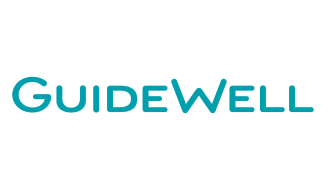Hanford, California, United States
New Perceptions North
Claimed
Claimed
Recovery.com has connected directly with this treatment provider to validate the information in their profile.
Joint Commission Accredited
The Joint Commission accreditation is a voluntary, objective process that evaluates and accredits healthcare organizations (like treatment centers) based on performance standards designed to improve quality and safety for patients. To be accredited means the treatment center has been found to meet the Commission's standards for quality and safety in patient care.
Provider's Policy
We accept private health insurance, most commercial PPO plans: Beacon, Blue Cross Blue Shield, Cigna, GEHA, and United Healthcare. We are an In-Network Member of: Aetna, Anthem, Halcyon Behavioral, Multiplan, Three Rivers Provider Network, and TriCare.
Estimated Cash Pay Rate
The cost listed here ($1,000+) is an estimate of the cash pay price. Center pricing can vary based on program and length of stay. Contact the center for more information. Recovery.com strives for price transparency so you can make an informed decision.
About New Perceptions North
Located in the sunny Central Valley of California, New Perceptions North provides detox and residential treatment for addiction and co-occurring disorders. Situated on 2 acres of remote property, New Perceptions North provides a therapeutic, safe, supportive community for a maximum of 6 patients at a time.
Upon admission, an individualized assessment determines the goals of the treatment. Programming includes individual and group therapy, family participation, relapse prevention and education, community support meetings, and after-care services. The home contains cable TV, a swimming pool, fitness center, and ping pong table.
New Perceptions North is Joint Commission accredited and accepts most private insurance plans.
Read More
Insurance Accepted
Provider's Policy:We accept private health insurance, most commercial PPO plans: Beacon, Blue Cross Blue Shield, Cigna, GEHA, and United Healthcare. We are an In-Network Member of: Aetna, Anthem, Halcyon Behavioral, Multiplan, Three Rivers Provider Network, and TriCare.

Center Overview
Men and Women
Men and women attend treatment for addiction in a co-ed setting, going to therapy groups together to share experiences, struggles, and successes.

Treatment Focus
This center treats primary substance use disorders and co-occurring mental health conditions. Your treatment plan addresses each condition at once with personalized, compassionate care for comprehensive healing.

Care Options






Treatment
Approaches
Family Involvement
Providers involve family in the treatment of their loved one through family therapy, visits, or both–because addiction is a family disease.
Individual Treatment
Individual care meets the needs of each patient, using personalized treatment to provide them the most relevant care and greatest chance of success.
Therapies
1-on-1 Counseling
Patient and therapist meet 1-on-1 to work through difficult emotions and behavioral challenges in a personal, private setting.
Family Therapy
Family therapy addresses group dynamics within a family system, with a focus on improving communication and interrupting unhealthy relationship patterns.
Life Skills
Teaching life skills like cooking, cleaning, clear communication, and even basic math provides a strong foundation for continued recovery.
Relapse Prevention Counseling
Relapse prevention counselors teach patients to recognize the signs of relapse and reduce their risk.
Substances We Treat
Alcohol
Using alcohol as a coping mechanism, or drinking excessively throughout the week, signals an alcohol use disorder.
Benzodiazepines
Benzodiazepines are prescribed to treat anxiety and sleep issues. They are highly habit forming, and their abuse can cause mood changes and poor judgement.
Co-Occurring Disorders
A person with multiple mental health diagnoses, such as addiction and depression, has co-occurring disorders also called dual diagnosis.
Cocaine
Cocaine is a stimulant with euphoric effects. Agitation, muscle ticks, psychosis, and heart issues are common symptoms of cocaine abuse.
Drug Addiction
Drug addiction is the excessive and repetitive use of substances, despite harmful consequences to a person's life, health, and relationships.
Ecstasy
Ecstasy is a stimulant that causes intense euphoria and heightened awareness. Abuse of this drug can trigger depression, insomnia, and memory problems.
Heroin
Heroin is a highly addictive and illegal opioid. It can cause insomnia, collapsed veins, heart issues, and additional mental health issues.
Psychedelics
Hallucinogenic drugs—like LSD—cause euphoria and increased sensory experiences. When abused, they can lead to depression and psychosis.
Methamphetamine
Methamphetamine, or meth, increases energy, agitation, and paranoia. Long-term use can result in severe physical and mental health issues.
Experience
Personal Amenities
Amenities
We love hearing about your treatment experience
Help individuals and families seeking treatment by sharing your first-hand experience with this treatment provider. Review Guidelines.

































